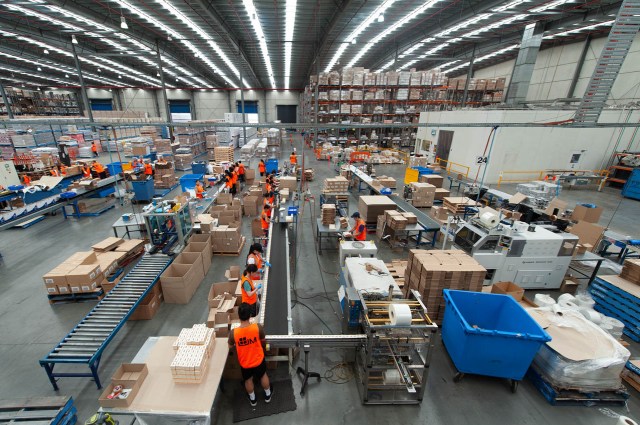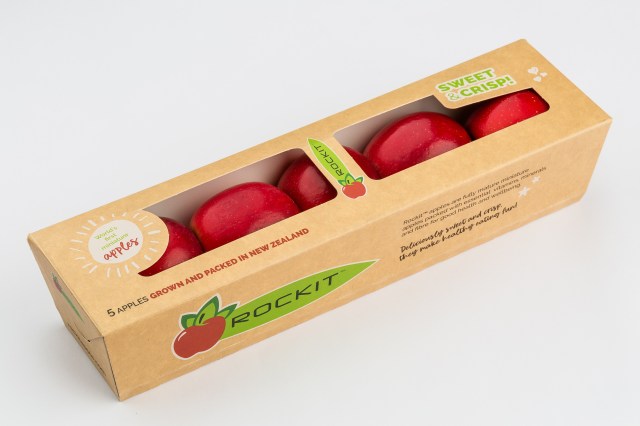
Sustainable packaging company Impact International has launched its sustainable forest initiative, in an attempt to further reduce its carbon footprint and become a carbon-neutral tube manufacturer.
Impact International managing director Aleks Lajovic told Sprinter that the company decided on this unique idea as it aims to offer its customers the ability to offset carbon produced from the raw materials used to manufacture their tube packaging.
“The Impact International forest is designed to help protect native Australian wildlife and fauna, whilst also reducing the carbon footprint of our customers packaging, i.e. our customers supply chain,” he said.
“Customers who are participating in our sustainable forest program have access to the most sustainable tubes available in the world, plus are helping to protect native Australian wildlife and fauna.”
Located 40 minutes’ drive from Canberra, the Impact forest sits on 114 acres of former farmland, which was previously in a state of disrepair. The forest is an agroforestry Pinus radiate plantation of 20,000 trees and approximately 1,300 native Australian trees onsite.
The existing forest will be divided into 20 lots. Customers will be assigned their lots, with the carbon captured from their lot used to offset the carbon emissions of the tubes that Impact International manufacturers for them. Impact International will hold full ownership of the forest.
Each lot will have signs erected, showing the customer’s name and logo. At the entry to the forest is a large sign explaining what the initiative is about and which customers are involved.
“Customers will also have access to the forest, for use in promotional videos, for social media posts, product launches, staff training, etcetera,” Lajovic said.
“Impact International also plans to build a hut on the property, with amenities, as well as diagrams and information on how carbon sequestration works and why the forest plays an important role in our journey to becoming a carbon neutral tube manufacturer.”
Customers will need to commit for a minimum of two years and can purchase more than one share in the forest if they wish. To date, Impact International has reached out to 13 of its selected customers, with 10 of them agreeing to be part of this initiative.
“Ask yourself, what are your other packaging suppliers doing to reduce the carbon footprint and are they doing it in a way that increases the marketability of your brand?” Lajovic questioned.
“Brand owners will get a very unique sustainability story that involves a forest here in Australia – not overseas – providing customers with a tangible asset they can visit, touch and hold.
Lajovic said about 50 per cent of the property is populated with existing trees, with the remaining land available to expand the forest and to plant more trees. An additional five new areas have been identified where new trees can be planted.
According to Lajovic, Impact International has developed a model to work out the cradle to gate carbon footprint of the raw materials used to manufacture its tubes.
“In September 2020, Impact International engaged Corporate Carbon Advisory, who completed an independent carbon and co-benefits assessment report on the forest. The final report details the independently verified carbon capture figures of the forest,” he said.
“Based on a standard extruded plastic tube that holds 100ml of product, the Impact International forest can offset the raw materials used to manufacture approximately 30,000,000 (30 million) 100ml tubes each year.”
When assessing carbon footprint, Lajovic mentioned that Scope 1, 2 and 3 emissions need to be understood:
- Scope 1 emissions are direct emissions produced by the burning of fuels of the emitter
- Scope 2 emissions are indirect emissions generated by the electricity consumed and purchased by the emitter
- Scope 3 emissions are indirect emissions produced by the emitter activity but owned and controlled by a different emitter from the one who reports on the emissions
“Through other initiatives, Impact International is working on or has covered Scope 1 and Scope 2 emissions. The Impact International sustainable forest initiative is designed to cover the cradle to gate emissions of our supply chain, so classified under Scope 3,” he said.
“Only when an organisation has completely covered Scope 1, 2 and 3 emissions can an organisation say that they are 100 per cent carbon neutral.”
Impact International’s sustainability journey
Impact International commenced its sustainability journey in 2017, with the goals of reducing the carbon footprint of its energy usage and also the carbon footprint of its raw materials.
“As a manufacturer, Impact International uses a lot of energy and that energy has a carbon footprint. The energy that we consume is either generated from our own solar farm or is purchased from the grid. Each year, we purchase from the grid approximately 2,200MWh of energy. This amount of energy in NSW has a carbon footprint of 1,986,000 kilograms of CO2 equivalent,” Lajovic said.
“Impact International has 100 per cent offset this amount, resulting in all energy used at our site to manufacture tubes being carbon neutral.
“The next goal for Impact International has been reducing the carbon footprint of the materials used to manufacture tubes and this is where the Impact International sustainable forest program comes in.”
Moving forward, Impact International plans to start planting more trees in 2021, with customers who join the initiative at the beginning of the forest project to be given the first opportunity to participate in future tree plantings.
“We plan to plant in 3,000 tree lots and to plant 3,000 trees each year, giving us forest expansion plans for the next three to four years,” Lajovic added.


